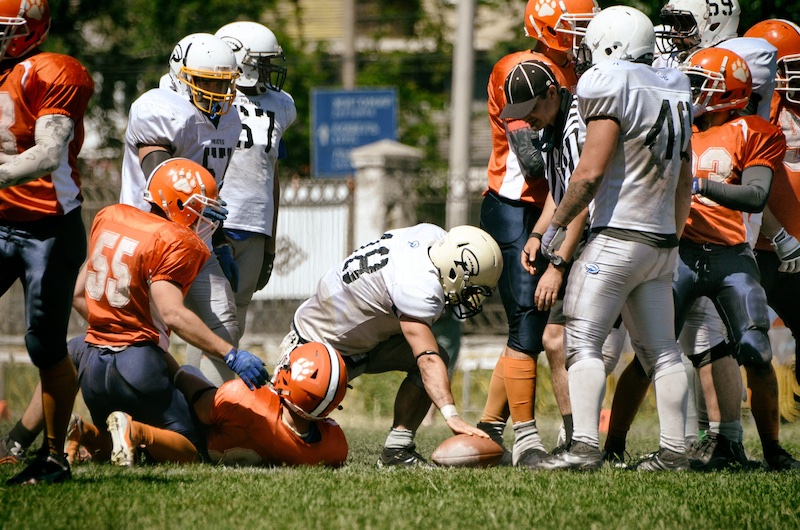For athletes, sports can be a source of immense pride. A lifetime of sweat and hard work comes to fruition in those few hours of performance. The experience is memorable not just for the sportsperson but also for the audience watching them create history with every game. However, this same sport can become the cause of their physical and mental strain. A sprained ankle, a torn ligament, or a severe concussion seem like short-term setbacks. But, these injuries can lead to lifelong consequences. From chronic pain to emotional struggles, sports injuries can rewrite the complete trajectory of athletes’ lives.
In this article, we explore the long-term impacts of sports injuries and understand the physical, emotional, and economic challenges athletes face.
Injuries That Last a Lifetime
Chronic Pain and Mobility Issues
We see sportspersons endure injuries left and right during games. But did you know that the effects of one simple injury can linger long after retirement? Chronic pain and mobility problems are common among former athletes.
A study published in 2023 revealed that nearly 80% of retired NFL players experience pain on a daily basis. That’s a shocking number!
Pain Management and Side Effects
Pain management can get really tricky for many athletes. With demanding schedules and high expectations, some of them end up overusing painkillers or treatments. For example, opioids are widely prescribed for managing sports-related pain. But sometimes they are used for long-term dependence or addiction.
It gets more complicated. Sometimes, treatment for substance addiction like that of opioids can cause other health problems. Take Suboxone for example. Suboxone is prescribed as an opioid addiction treatment medication. However, in recent claims by plaintiffs, it has come to the surface that this medication has caused severe tooth decay in patients using it.
So now, not only does the athlete have to deal with pain caused by injury, and manage addiction but also treat the ill effects of the medication. Talk about a slippery slope! There are, of course, ways to make this a little better and find the right help.
For instance, in the Suboxone case, athletes impacted by the medication can join a lawsuit against the manufacturer. TruLaw supposes that the manufacturer knew or should have known about the side effects of the medicine, and warned the users for the same. It could have helped patients make an informed decision or choose some other form of treatment.
The lawsuit is ongoing and many are joining the cause. So, if you or any of your friends are wondering “Can I still apply for the Suboxone lawsuit?”, the answer is yes. Such legal courses bring hope, but it still doesn’t take away from the fact that pain management in athletes needs more attention and better guidance.
Cardiovascular and Neurological Implications
The heart and brain are also at risk due to sports injuries. For example, concussions don’t just cause short-term symptoms like headaches or dizziness. Such repeated head injuries have been linked to Chronic Traumatic Encephalopathy (CTE), a progressive neurological disorder that affects memory, decision-making, and even behavior.
Arthritis and Degenerative Conditions
Arthritis and joint degeneration are nearly inevitable for athletes who have suffered sustained injuries. Sports that involve repetitive joint stress, such as tennis or running, make the wear and tear on cartilage even faster. For instance, ACL injuries are very common among soccer players. These can lead to osteoarthritis later in life, even with medical intervention.
The Mental and Emotional Effects of Sports Injuries
Chronic Stress and Frustration
When sportspersons who are used to high performance get injured, the inability to play can create immense stress and frustration. This can impact both their physical recovery and mental health. Additionally, the mental toll of watching others play while having to rest can also induce feelings of helplessness.
Depression, Anxiety, and Identity Crisis
The link between physical injuries and mental health disorders like depression and anxiety is well-documented. A systematic review found that there is a bidirectional association between musculoskeletal injuries caused by sports and the presence of depressive symptoms. It also mentions that these injuries can increase the risk of depression as well.
Without a support system, athletes can spiral into isolation. They may start feeling like their injuries have taken their power away, also causing an identity crisis. For professional athletes, the game pretty much defines their identity.
When injuries cause early retirement, the question arises “What now?” Who are they without the sport? Transitioning out of this mindset requires redefining self-worth. This process can be emotionally taxing and time-consuming, but it is extremely necessary.
Economic and Career Implications of Sports Injuries
Injuries can derail careers and cut short an athlete’s dreams as well as earning potential. For many, this massive blow is worsened by medical bills and rehabilitation costs. For younger athletes who have suffered sports injuries early on in their careers, the loss of a potential career and earnings can be even more heartbreaking.
What we think of as temporary setbacks, can sometimes leave a person completely lost. From chronic physical pain to emotional struggles, life can quickly make a complex turn. Being aware and understanding these impacts helps you prepare and plan your steps better. One thing is for sure, one must stay strong. After all, this is the spirit of sportsmanship, isn’t it!









